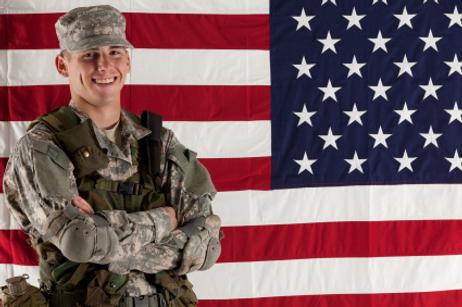One of the best things about private schools is that there is a school out there somewhere which is just right for your educational objectives, whatever those might be. As you begin to draw a picture of the kind of school which you would like your child to attend, you just might discover that the structured environment and leadership training military schools are well known for is just what you are looking for.
So, what about military schools? When might you consider sending your son or daughter to a military school? Let’s settle a couple of things before we proceed: military schools are not places you send a child with discipline or other issues. They are not reform schools or schools for troubled youth. If a professional such as a psychologist or psychiatrist recommends your child attend a therapeutic school, you will have plenty of options for that purpose. Military schools are genuine institutions of learning with a specific focus: military training. Second, military service is not required when you attend a military high school. If your child decides that military service is a career path which she wants to pursue, then a military school will have given her a good start.
Discipline
In life just about anything worth doing well requires lots of discipline. Discipline takes hard work, persistence, stamina, and time. In an era when instant gratification seems endemic, good old-fashioned discipline lays a solid foundation for success in adult life. Discipline evolves into a pattern of self-discipline. After several years of training, your child will know what she has to do to accomplish her objectives. Military schools serve up discipline as regularly as they serve breakfast.
Missouri Military Academy sums it up very well:
"Whether learning in the classroom, completing community service, performing on the athletic field, or interacting socially, we always expected our cadets to do the right thing – acting with respect, responsibility, honor, and generosity. A Missouri Military Academy diploma means that a student has gone beyond the mastery of the subjects necessary to succeed in college and possesses the self-discipline and values that will help him succeed in all aspects of life."
Structure
Structure goes hand in hand with discipline. Structure and discipline sound rigorous and they are. If your child is accustomed to doing whatever she wants whenever she wants to do it, the structure which a military school offers will take some getting used to. Think of structure as the organization which allows discipline to produce results and you are beginning to understand how military schools work. Understanding how to attain goals and results begins with developing basic skills. If you are beginning to think that there is perhaps a bit too much rigidity in all of this, just remember that discipline and structure are the frameworks for growth. Your child’s growth.
Direction
Military schools can give your child’s life purpose and direction. A key component of military schools training is leadership. Leaders are fashioned one step at a time. There are many pieces to the leadership picture. Military schools are very proficient at developing leadership skills. Leadership is not only about leading a platoon into a win at war games. Leadership involves character, judgment, compassion, and trust. You can understand how learning how to lead can be beneficial in just about any endeavor. It’s all about managing people. Military schools teach these valuable lessons effectively and at an impressionable age.
Culver Academies expresses this sentiment succinctly in their description of their leadership curriculum:
"The leadership curriculum, for both boys and girls, explores the core values of effective leadership – good communication and listening skills, group dynamics, consensus building, decision making, goal setting, negotiation, motivation, and ethics."
Service
Many military schools offer JROTC or Junior Regular Officer Training Corps. This is a Federal program sponsored by the United States Army. The Army cannot recruit high school students. So it uses the JROTC program to expose young people to the possibilities and potential of military service with the hope that some of them might choose to become part of the armed forces in later life. Needless to say, military schools are committed to the success of their graduates. If a military career is part of your child’s plan, a military school makes perfect sense.
Service to country is a high-minded concept. Military schools get to the heart of the concept with community service and other programs which teach their students compassion and concern for the welfare of others. Service to country has kept our nation free for hundreds of years. Patriotism and the love of our nation are part of the DNA of any military school. Your child will benefit from that as well.
It is worth noting that military schools know what it takes to secure places in our nation's military academies:
From Admiral Farragut Academy's website:
"Every year, the officer in charge of our Naval Science Program has the authority each year to make the following senior nominations:
6 nominations to the U.S. Naval Academy
5 nominations to the U.S. Air Force Academy
3 nominations to the U.S. Military Academy at West Point
Normally, to receive an offer of appointment to the Naval (or another military) Academy, an applicant must obtain a nomination from an official source such as a U.S. Representative, two U.S. Senators, and the Vice President of the United States, who are only permitted to nominate a few students each year from their entire state. Thus, the chance to be nominated by our officer in charge--from only a pool of other qualified Admiral Farragut students--is an outstanding advantage for those students interested in pursuing a military college career."
The following video offers an overview of St. John's Northwestern Academy, Delafield, Wisconsin.
Curriculum
The graduates of the 42 military schools in the U.S. matriculate to colleges and universities at home and abroad. Academic training and good results are the primary objectives of military schools. Always have been. Always will be. Most military schools think of themselves as college preparatory schools. That’s how important academic preparation is. Strong leaders need solid academic training too. Military schools do their very best to provide that.
Take time to explore the advantages of a military school education for your child. Call the admissions offices. Ask questions. Then visit a couple of schools A military school may turn out to be the best option for your child and your requirements for her high school education.
Questions? Contact us on Facebook. @privateschoolreview













